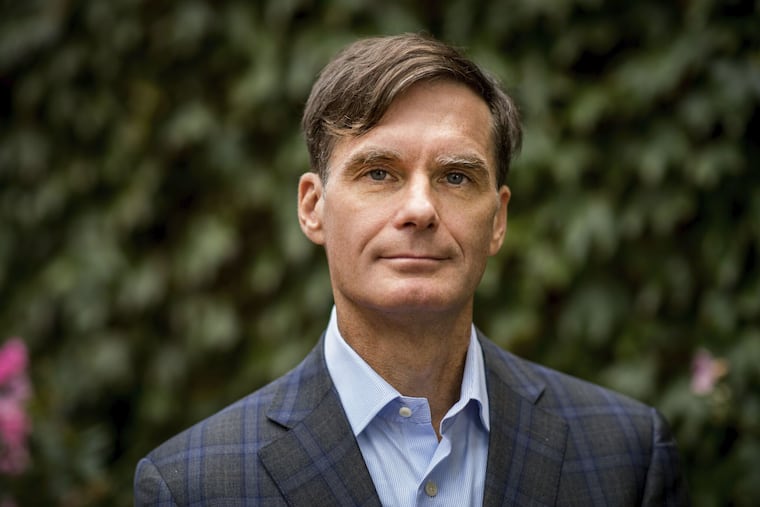We can’t drug our way out of despair over Alzheimer’s | Opinion
For over a century, people living with Alzheimer’s disease and their caregivers have been caught in a vortex of uneven, frustrating progress.

On June 7, the Food and Drug Administration seemingly ushered in a revolution for treating Alzheimer’s disease: approving aducanumab (marketed as Aduhelm). Alzheimer’s Association president Harry Johns called this “historic” decision a “victory for people living with Alzheimer’s disease and their families.”
In the weeks to follow, my colleagues and I at the Penn Memory Center observed an unusual split among patients and caregivers. Some shared in the association’s celebration — but others were angry.
» READ MORE: Penn dementia expert on newly approved Alzheimer’s drug: ‘The data aren’t strong enough’
I wasn’t surprised. For more than a century, people living with Alzheimer’s disease and their caregivers have been caught in a vortex of cultural and political forces that have delivered uneven, frustrating progress. The approval of Aduhelm and the controversies now following it are yet one more chapter in that story.
Even as late as the 1990s, medicine didn’t care much about people living with Alzheimer’s, which totals about 280,000 in Pennsylvania today. In medical school, I was taught that the millions of older adults with dementia were suffering not from this disease but from “senility” caused by extreme aging. There was little we could do for them, save for palliating their most extreme symptoms. Researchers had no interest in the causes of or treatments for their problems.
Why? The story begins in early 20th-century Germany. There, collegial German neuropathologists and psychiatrists, including Alois Alzheimer, began to question the dogma that older adults with dementia were suffering from extreme aging. Instead, perhaps, the diseases that caused dementia in younger adults also caused it in the elderly.
But then culture and politics ground their revolutionary research to a halt. Some two decades of political, economic, and social instability, chaos, and totalitarian terror sandwiched between two devastating world wars robbed these physicians’ work of the needed resources and support.
» READ MORE: About 1 in 5 Pennsylvania adults are caregivers, and they’re not OK | Opinion
Instead of these physicians getting to work so that others could diagnose, treat, and study older adults with dementia, a dark ages followed. For much of the 20th century, society didn’t care about the suffering of these elderly. American families were left to their own devices to figure out how to live with and care for a person with Alzheimer’s.
By 1980, seven angry families said enough. They formed the Alzheimer’s Association, modeled after a self-help group — the distinctly American approach to problems society either ignores or doesn’t seem to care about. Among their leaders was Hilda Pridgeon. Caregiver for her husband, Al, she knew how hard it was to find and pay for care. At a 1991 congressional hearing, she urged Congress to create long-term care social insurance for patients and families: “People are afraid. I’m afraid. They are afraid of what will happen to them if they get this disease. They are even more afraid of how their families will cope.” The treatments she sought included education about Al’s diagnosis, and training for Hilda to identify common problems and access services to address them, like an adult day activity program and a companion to help Al stay safe, social, and engaged while Hilda was at work. These long-term care services and supports improve patient and caregiver well-being.
Hilda and her colleagues never succeeded. Today’s patients and families remain desperate, and Medicare is still prohibited from supporting these treatments. Much of the triple-digit billion-dollar annual cost of Alzheimer’s remains the cost of families providing care with their uncompensated time and savings.
“We need to break the absurdity of embracing a pharmaceutical stimulus package for care.”
Why? Again, as in Germany, culture and politics intruded. At the same time Hilda Pridgeon set to work, the Reagan revolution began. By the end of the 20th century, the political climate became hostile to expanding or creating social programs, or to tax increases to pay for them. They’re routinely dismissed as socialism.
Therein lies the anger of some caregivers and patients toward the FDA’s decision on Aduhelm. An expensive treatment with uncertain patient benefits is available — while treatments that have been shown to improve patient and caregiver well-being aren’t.
The drug reduces levels of brain amyloid. It’s uncertain whether this slows progressive disability. The FDA is requiring Biogen to demonstrate if the drug can deliver what matters to patients and their caregivers. That study hasn’t begun. Meanwhile, Biogen can sell the drug to those willing to take on its risks and uncertainties at an estimated annual per-patient cost of nearly $60,000.
This creates an irony of care, one the American Jobs proposal, a.k.a. the “infrastructure package,” begins to address with modest efforts to improve the wages of home care workers. Yet opponents of social programs dismiss even this as socialism.
As Washington fights, patients and caregivers suffer. Meanwhile, even critics of Aduhelm’s approval ruefully concede how the revenue from prescribing it will bring in much-needed resources to memory centers so we can begin providing long-term care services and supports.
We need to break the absurdity of embracing a pharmaceutical stimulus package for care. We need a new approach to Alzheimer’s and all other diseases that cause dementia. We do need effective drug treatments. But short of cures, patients need services and supports.
Simply put, we’re not going to drug our way out of our despair.
Jason Karlawish is a professor at the University of Pennsylvania and author of ”The Problem of Alzheimer’s Disease: How Science, Culture and Politics Turned a Rare Disease Into a Crisis and What We Can Do About It.” @jasonkarlawish